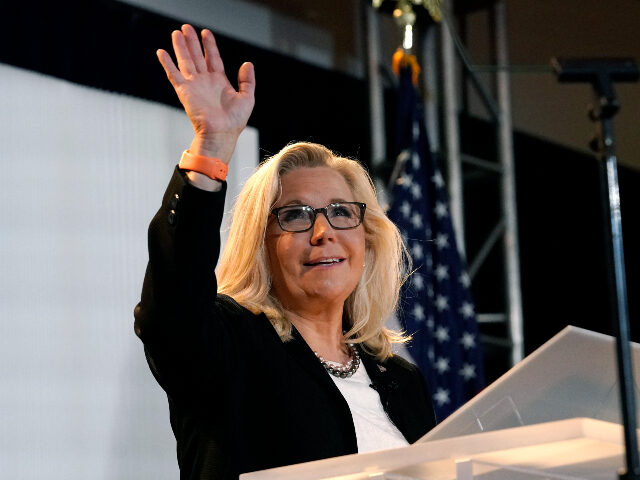Outgoing Rep. Liz Cheney (R-WY) hinted at a possible presidential run in her concession speech Tuesday evening in Jackson, Wyoming. Critics laughed, but while Cheney might have no hope of winning, she could play the part of spoiler.
Cheney, contemplating her primary loss, compared herself to Abraham Lincoln: “The great and original champion of our party, Abraham Lincoln, was defeated in elections for the Senate and the House before he won the most important election of all. Lincoln ultimately prevailed, he saved our Union and he defined our obligation as Americans for all of history.”
The difference, of course, is that Lincoln built a positive reputation as an opponent of the expansion of slavery, even as he lost narrow races. He was not, as Cheney is, seen as the handmaiden of a ruling party determined to crush its political opposition.
But the analogy suggests that Cheney is contemplating a presidential run — an ambition she has hinted at before. Though she could not possibly hope to win the nomination of her party, she might draw enough votes away from the Republican Party, as a third-party candidate, to prevent the GOP nominee from winning a close election, keeping Democrats in the White House.
Presumably, Cheney would run to keep former President Donald Trump from winning again. But she could very well oppose any GOP nominee. She and her supporters have cast “Trumpism” as the real problem in the party, and they want to purge it.
Recently, for example, Cheney attacked Florida Gov. Ron DeSantis (R) — the most popular Republican governor in America, and arguably the most successful one — because he supports Trump. She said she could not back him in the future and that her party might need to lose elections for several presidential cycles before she could be proud to support it. Hence Cheney may run in 2024 regardless of the Republican nominee, hoping to split the vote on the right and keep the left firmly in power.
It is not clear how many Republicans would actually be drawn to vote for Cheney in a presidential race. But the margins can be incredibly tight: third-party candidates often exceed the margin separating the candidates from the two main parties.
Joel B. Pollak is Senior Editor-at-Large at Breitbart News and the host of Breitbart News Sunday on Sirius XM Patriot on Sunday evenings from 7 p.m. to 10 p.m. ET (4 p.m. to 7 p.m. PT). He is the author of the recent e-book, Neither Free nor Fair: The 2020 U.S. Presidential Election. His recent book, RED NOVEMBER, tells the story of the 2020 Democratic presidential primary from a conservative perspective. He is a winner of the 2018 Robert Novak Journalism Alumni Fellowship. Follow him on Twitter at @joelpollak.

COMMENTS
Please let us know if you're having issues with commenting.